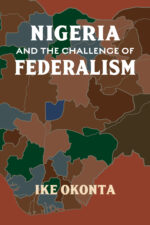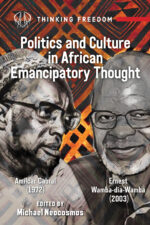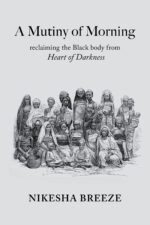-
Nigeria and the Challenge of Federalism
The book identifies three key moments in Nigeria’s experience with federalism and makes the argument that a complex and socially-diverse country like Nigeria can only be successfully governed by a truly federal arrangement, and not the present unitary contraption that has only delivered poverty, social unrest and the powerful centrifugal forces that are now threatening the very existence of the country itself. The time has come, write Ike Okonta, to convene a conference with sovereign powers to design a federal constitution for the country. The current process of amending the 1999 Constitution by the National Assembly will not suffice. The document is so hopelessly flawed that only its discarding and a fresh effort at constitution-making will suffice.
Biographical Notes
Ike Okonta was, until recently, a Leverhulme Early Career Fellow in the Department of Politics at the University of Oxford. Currently, he is Coordinating Fellow of the New Centre for Social Research, Abuja, Nigeria. He is author of Where Vultures Feast: Shell, Human Rights and Oil (2003) Paperback; When Citizens Revolt: Nigerian Elites, Big Oil and the Ogoni Struggle for Self-Determination (2008); Biafran Ghosts: The Massob Ethnic Militia and Nigeria’s Democratisation Process (2012); The Failure of Leadership in Africa’s Development (2020)
Table of Contents
1. Nigeria’s Flawed Federalism: The Colonial Roots, 2. Killing Federalism: The Soldiers Step In, 3. Consolidating Centralism: The Second Republic and After, Challenging Centralism or the Spirit of Ken Saro-Wiwa, 5. Conclusion: Bringing Back Federalism. 6. Acknowledgements.
BISAC and Keywords
POLITICAL SCIENCE / Colonialism & Post-ColonialismPOLITICAL SCIENCE / ConstitutionsPOLITICAL SCIENCE / World / AfricanKeywords: Nigeria, Federalism, Sovereignty, National Assembly, biafra, Ogoni, Ken Saro-WiwaAudienceGeneral/Trade – Adult fiction and nonfiction -
Politics and Culture in African Emancipatory Thought
The current absence of any emancipatory vision for Africa lies at the heart of our political problems of racial capitalist and colonial oppression. Any attempt to rethink political emancipation on the African continent must be able to locate a universal conception of freedom within singular cultural experiences where people live. Irrespective of the specific manner in which such struggles for freedom were thought within different historical contexts, emancipatory politics always exhibited such a dialectic when it was based within popular traditions. Yet only some militant intellectual leaders understood the importance of this dialectic in thought.
The present volume outlines and discusses two particularly important views concerning the role and importance of popular culture in emancipatory politics in Africa. Each is the product of distinct forms of colonial capitalist exploitation: the former saw the light of day within a colonial context while the latter is directly confronted by the neocolonial state. All emancipatory politics are developed in confrontation with state power, and all begin with a process of discussion and debate whereby a collective subject begins to be formed. The formation of such a collective political subject has been fundamentally informed by popular cultures on the African continent.
The two authors whose essays are included here understood this and posit popular culture at the centre of their politics. The first, Amílcar Cabral, addresses the central role of popular culture in the independence struggle of Guinea Bissau in the 1970s; the second, Ernest Wamba-dia-Wamba, addresses the centrality of African popular culture in an emancipatory politics for the current Democratic Republic of Congo. Despite the distance in time that separates them, both Cabral and Wamba-dia-Wamba develop a dialectics at the core of their politics which activates the universals of culture in the present. It is this that makes their views of central importance to emancipatory thought today.
-
A Mutiny of Morning: Reclaiming the Black Body from Heart of Darkness
Nikesha Breeze has taken pages from Joseph Conrad’s Heart of Darkness, taken his words, and forced them to leave his colonized mind. She has made the words her own in poetic form. She illuminates the invisible Black voices inside, a radical, surgical, and unapologetic Black appropriation, at the same time as a careful birthing and spiritual road map. The resulting poems are sizzling purifications, violent restorations of integrity, pain, wound, bewilderment, rage, and, sometimes, luminous generosity.
The violent, scathing white supremacy of Joseph Conrad’s Heart of Darkness is traversed page by page and word by word in this brilliant prayer/poem—a work of reclamation, redemption, rescue, and repossession. — Wende Marshall, co-editor Insurrectionary Uprisings: A Reader in Revolutionary Nonviolence and Decolonization



